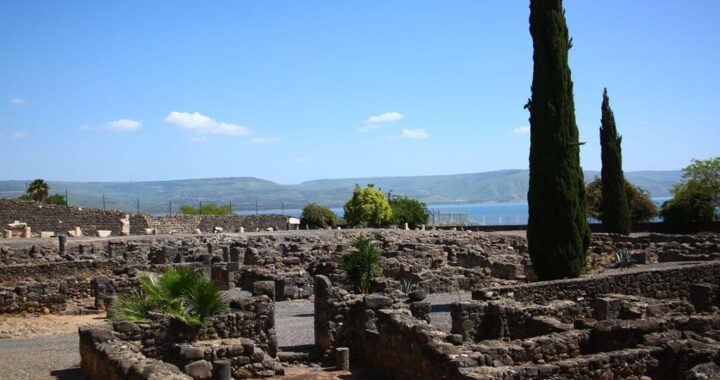The world has watched with utter amazement the unexpected political changes in Eastern Europe during the final weeks of 1989. Believers are especially interested in what is transpiring. Many of them are enquiring about the prophetic and practical implications of the dramatic developments. In response to numerous questions about the changes and challenges in the Communist camp, the following observations are offered:
I. The Profound Revolution in Communist Countries.
A. Changes in Government:
In a matter of weeks Soviet vassal states have crumbled: Poland fell August 18–19; Hungary, October 7; East Germany, November 9; Bulgaria, November 10; Czechoslovakia, November 29; and Romania, December 22. The West has been mesmerized as Communist leaders have been carted off to the trash heap of history: Jaruzelski, Kadar, Honecker, Jakes, Zhivkov Husak, Krenz, and Ceausescu.
B. Changes in Society:
- Freedom of Travel. With the crumbling of governments, immutable institutions began to fall overnight. The opening of the Berlin Wall on November 9 and the lifting of all travel restrictions brought a flood of two million East German visitors to West Germany that first weekend of freedom. Imprisoned in their “Worker’s Paradise” for four decades and generally unable to leave their country until retirement age, practically every East German has visited West Germany since the opening of the borders. Over 2,000 persons per day stay permanently.
- Freedom of Speech. Of all my 44 trips behind the Iron Curtain to minister, my most recent was the most memorable. My brother, a pastor of three churches in East Germany, met me by car in West Germany—a first for both of us. At the East German border crossing where stern guards heretofore scrutinized our luggage, a friendly official waved us through. Immediately inside the country large posters, hanging from houses and bridges, attested to the new freedom of speech. One sign in English said, “Let’s go West.” Another sign said, “Our prayers for 40 years have been answered.” One sign warned: “Caution! Our streets are “kaputt” and so is our country!” Yet another sign read, “Willkommen to the other free part of Germany.” After 12 years under Hitler and 40 years under Communism, people are at last free to speak their minds.
- Freedom of Religion. Overnight all restrictions on Christians have been removed. In higher education and the vocational world, believers are no longer ostracized. Churches are free to print Christian literature. Books and periodicals may freely be taken or mailed into the country. Public propagation of one’s faith is at last permitted in Eastern Europe. Recently my brother preached in a church to 1,000 persons, while outside a crowd numbering 10,000 listened over the loud authors—all with government approval. Young people are no longer forced to join the Communist youth party. Courses on Marxism-Leninism have been discontinued.
- Freedom of the Press. Imagine yourself as a persecuted pastor in a Communist country. Suddenly the newspapers are full of reports on Christians celebrating the birth of Christ. What is more, the local paper, with the same Communist editor as before November 9, will print any sermon that you submit to it! My brother’s response to these delightful developments, as I asked of him about his reactions, was a quotation from Psalm 126: “When the Lord turned again the captivity of Zion, we were like them that dream. Then was our mouth filled with laughter, and our tongue with singing.”
II. The Prophetic Relevance of the Convulsive Changes
A. Western Europe After the Rapture:
How do current events relate to prophecy? We believe that the next event on the prophetic calendar is the removal of every believer from the earth. The ensuing tribulation period, seven years in duration, is a time of divine judgment and geopolitical upheavals. Even now we can discern certain signs of the times which appear to anticipate these events. For three and a half years after the rapture a Roman dictator will rule over a ten-nation confederacy (Dan. 7:19–26). Possibly the Economic Community in Europe today, with its political counterpart, the European Parliament are precursors of the revival of Rome. A powerful foe to the East keeps the Roman ruler at first from the aspirations of a world-wide empire.
B. The Communist Invasion of Israel:
In the middle of the tribulation period, Russia and her satellites invade Israel (Ezekiel 38–39), which has been regathered to its land (Ex. 37). While some question the identification of Gog and Magog as Russia, contextual considerations seem to favor such a view. Geographically, the invaders come, literally, “from the uttermost parts of the north” (38:6, 15; 39:2). The ruler of the invaders is identified as the prince of Rosh (38:2 NASV). Lexicographer Gesenius, (writing in 1810–11!) who has no prophetic axe to grind, says Rosh is “undoubtedly the Russians” (Hebrew-English Lexicon to the Old Testament p. 752, italics in the original).
Further, the invader is an arch-enemy of Israel (38:10c). His confederates are today, at least in part, Communist nations (38:5,6). Iran, Ethiopia, and Libya are mentioned. Togarmah is probably to be identified as Armenia. But who is Gomer? It is commonly understood that descendants of Gomer moved northwest of the Black Sea, especially the descendants of Ashkenaz, son of Gomer (Gen. 12:3). The Jewish Talmud relates Gomer to Germania. In fact, the German-speaking Jews are known as Ashkenazim (Encyclopedia Judaica III, 720-721). These Cimmerians, descendants of Gomer and Ashkenaz, settled as far west as Belgium and as far north as Wales. The Gomer of Ezekiel 38:2 could be a people anywhere between the Caucasus Mountains and Western Europe.
Prophetically it is not necessary to see Western European nations participating in the invasion. The German nation in general and East Germany in particular do not necessarily have to be identified with the Gomer of Ezekiel 38:2. In other words, even if East and West Germany united to form a free confederation, a prospect as unlikely now as the opening of the Iron Curtain was last summer, our understanding of prophecy would not need revision. If Eastern Europe does indeed merge with free Western Europe, it would eventually become part of Antichrist’s domain. After the destruction of the northern Confederacy in a miraculous manner (Ezekiel 38:17–23), Antichrist will be world ruler for three and a half years. What will happen in Eastern Europe in the near future is anyone’s guess. Mark Twain cautioned that one should be very reluctant to make predictions, especially those about the future.
III. Practical Ramifications for Concerned Christians
A. Persistent Prayer
Believers in Eastern Europe are delighted over their new freedoms, but depressed about the future. The situation there could change for the worse overnight. They live on a razor’s edge and request our prayers.
B. Individual Initiatives
If we correspond with believers in Eastern Europe, we should encourage them and even visit them or make it possible for them to visit us. Even though they are free to travel, financially they are very limited. As one pastor said, “My freedom goes as far as my full gas tank will take me.”
C. Special Support
For Eastern Europe the situation has never been worse economically. It is legal to send monetary gifts to individuals. It is safe and simple to send or take needed items to them. Christians can show their loving concern. For example, in the spirit of Galatians 6:10, the youth group of Ankeny Baptist Church, Ankeny, Iowa, supplied an ecstatic East German youth group with blue jeans. The children at Grandview Park Baptist School in Des Moines, yearly collect quantities of pens, pencils, toys and candies for East German young people. Our help should also be extended to Christian workers in Western Europe who minister to the thousands of new immigrants. May through our special personal efforts those enjoying their newfound political freedom soon discover the spiritual freedom found in Christ alone.

Dr. Manfred Kober
Dr. Manfred Kober (Th.M. and Th.D., Dallas Theological Seminary) is a German-born theologian and educator who has significantly contributed to Christian scholarship and ministry. After enduring the hardships of post-war Germany, he emigrated to the United States in 1953. Dr. Kober pursued theological studies at Baptist Bible Seminary in Johnson City, New York, the University of Erlangen in Germany, and Dallas Theological Seminary.
He served as a professor and chaired the Department of Theology at Faith Baptist Bible College in Ankeny, Iowa, from 1969 to 1999. Today, he resides in Bondurant, IA, with his wife, Sharon, and they have two children and three grandchildren.


